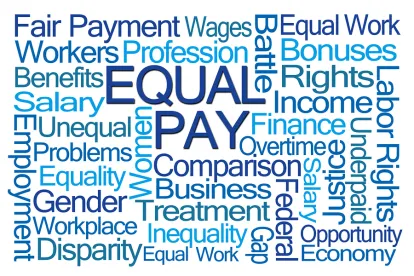The Oregon Equal Pay Act of 2017 greatly extends pay equity protections to a variety of protected classes, prohibits employers from asking for applicants’ salary history, and expands existing remedies available to employees. House Bill 2005 also offers key protections and a safe harbor for employers.
The majority of the Act’s requirements goes into effect on January 1, 2019. The ban on employers seeking salary history becomes effective in October 2017, but civil actions against employers who seek salary history are not permitted until January 1, 2024.
Prohibits Discrimination Based on Protected Classes
The new law expands upon existing Oregon law, which already prohibits sex-based pay discrimination, to encompass 10 protected classes:
-
Race
-
Color
-
Religion
-
Sex
-
Sexual orientation
-
National origin
-
Marital status
-
Veteran status
-
Disability
-
Age
“Work of Comparable Character” Standard Defined
While existing Oregon law prohibits paying women less than men for “work of comparable character,” the new law expressly defines the standard as work that requires “substantially similar knowledge, skill, effort, responsibility and working conditions in the performance of work, regardless of job description or job title.”
This standard’s definition is similar to those in other states (including California and Massachusetts) to have passed pay equity laws.
When Pay Differences are Acceptable
The law provides exceptions to the bar on different compensation levels. The difference must be based on a bona fide factor that is job-related and based on one of the enumerated factors in the law. These factors include:
-
a seniority or merit system,
-
work location,
-
education,
-
training,
-
experience, or
-
a combination of the factors listed that accounts for the entire differential.
The law does not define many of these terms or clarify whether an employer must account for the entire differential only when using a combination of factors or also when using just one factor to explain the difference. Therefore, how employers might permissibly pay different wage rates is uncertain.
Salary History Inquiries Prohibited
Similar to the Massachusetts and Puerto Rico laws, the Oregon law prohibits employers from screening applicants based on salary history or seeking an applicant’s salary history, either from the applicant or from his or her current or former employer. Additionally, employers cannot rely on salary history in setting compensation, except for when determining pay for a current employee during a transfer, move, or hire to a new position with the same employer.
Unlike other salary history bans, Oregon’s law does not allow an employer to confirm salary history before an offer of employment, even if the applicant voluntarily discloses the information. However, it allows an employer to confirm prior compensation after the employer makes an offer of employment that includes compensation, so long as prior authorization is obtained.
Limited Safe Harbor Available for Employers that Conduct Pay Analysis
Also similar to the laws of Massachusetts and Puerto Rico, Oregon’s law gives employers a safe harbor if they conduct a pay equity analysis. However, unlike Massachusetts and more like Puerto Rico, this safe harbor is not a complete defense to a violation.
The Oregon law permits employers to file a motion to disallow compensatory or punitive damages in any case, including class actions, brought under the new law. The employer still would be responsible for up to two years’ back pay and attorneys’ fees.
To have effect, the pay analysis must be completed within three years of any lawsuit and the employer must show reasonable efforts based on the analysis to eliminate the prohibited wage disparities. An “equal-pay analysis” is defined as “an evaluation process to assess and correct wage disparities among employees who perform work of comparable character.”
Posting Requirement
The law also contains a posting requirement. The Oregon Bureau of Labor and Industries (BOLI) will provide a template that meets the required notice provisions. BOLI has not made this template available yet.
Effective Dates
The majority of the Oregon Equal Pay Act provisions, including the discrimination provisions and posting requirement, takes effect on January 1, 2019.
The provision prohibiting employers from seeking salary history becomes effective 91 days after the Oregon legislature adjourns the 2017 session, which is expected to be July 10, 2017. Accordingly, the salary history ban will be effective around October 9, 2017. However, because of a compromise that senators struck with the Oregon business community, civil actions against employers who seek salary history are not permitted until January 1, 2024.




 />i
/>i

